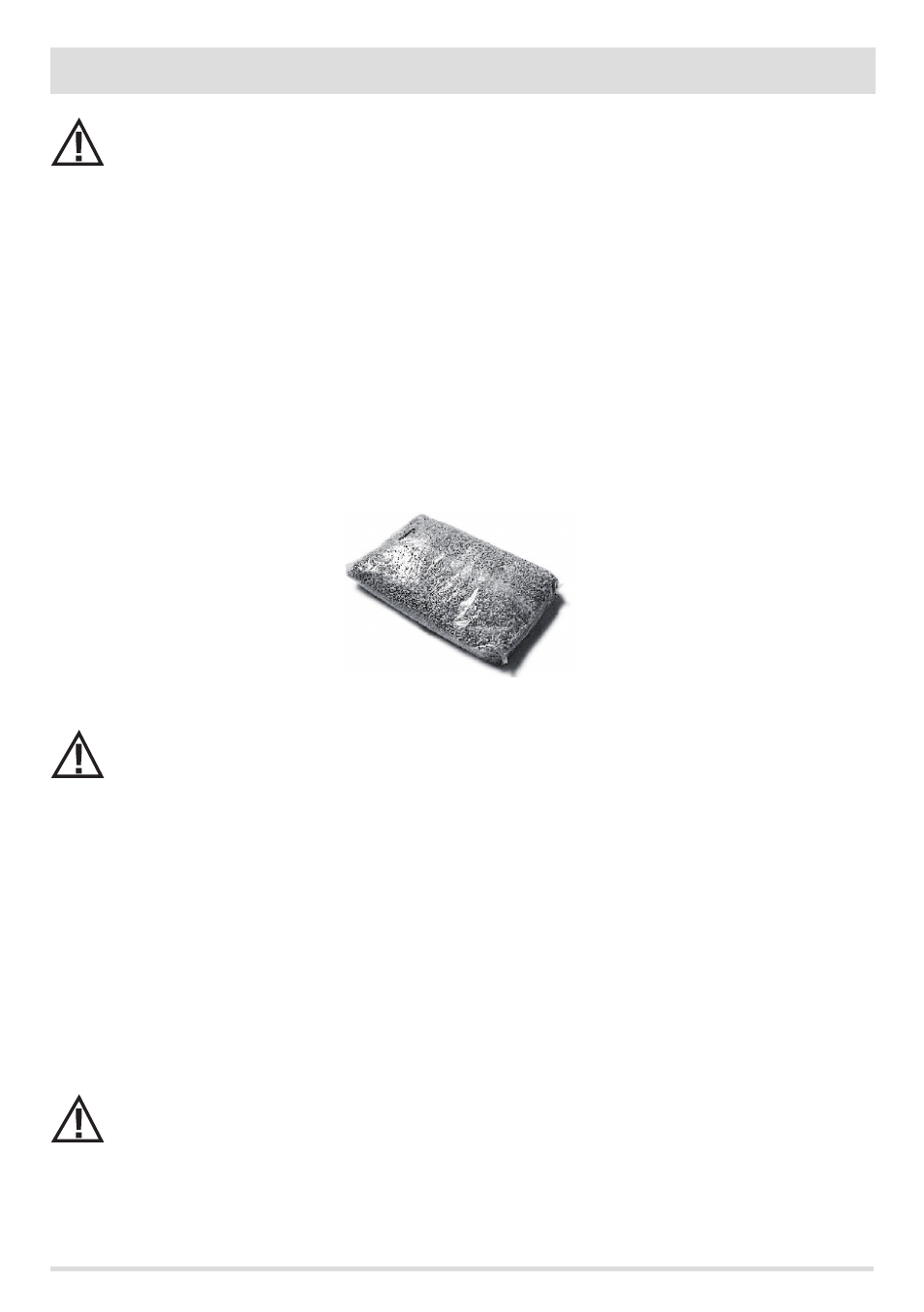Installation – MCZ Duo HYDRO AIR User Manual
Page 11

9
2-INSTALLATION
Technical Dept. - All rights reserved - Reproduction is prohibited
The instructions contained in this chapter explicitly refer to the regulations of the Italian installation Standard UNI
10683. In any case, always comply with the regulations in force in the country of installation.
PELLETS
Wood pellets are manufactured by hot-extruding compressed sawdust which is produced during the working of natural dried wood. The
compactness of the material is guaranteed by the lignin contained in the wood itself and allows pellets to be produced without glue or
binders.
The market offers different types of pellets with characteristics that vary according to the wood mixtures used. The most common
diameter on the market is 6 mm (although 8 mm diameter is available too) with a length, on average, of between 3 and 40 mm. A good
quality pellet has a density of between 600 and 750 or more kg/metres cubed and a water content that accounts for 5 to 8% of its weight.
Pellets have technical advantages besides being an ecological fuel, as the wood residue is used completely, thereby achieving cleaner
combustion than that of fossil fuels.
Good-quality wood has a calorific value of 4.4 kW/kg (15% moisture, after about 18 months of seasoning), whereas that of pellets is 4.9
kW/kg. To ensure good combustion, the pellets must be stored in a dry place and protected from dirt. Pellets are usually supplied in 15 kg
bags, therefore, storing them is very convenient.
Good quality pellets guarantee good combustion, thereby decreasing harmful emissions into the atmosphere.
The poorer the quality of the fuel, the more often the internal parts of the brazier and combustion chamber must
be cleaned.
The main quality certifications for pellets currently available on the European market guarantee that the fuel complies with class A1/
A2 according to ISO 17225-2. (formerly EN 14961). These certifications include, for example, ENPlus, DINplus, Ö-Norm M7135, and in
particular, guarantee the following characteristics:
• calorific value: 4.6 ÷ 5.3 kWh/kg.
• Moisture content: ≤ 10% of the weight.
• Percentage of ash: max 1.2% of the weight (A1 less than 0.7%).
• Diameter: 6±1/8±1 mm.
• Length: 3÷40 mm.
• Content: 100% untreated wood without the addition of binding substances (max 5% bark).
• Packaging: in sacks made from ecologically compatible or biologically decomposing material.
The company strongly recommends using certified fuel for its products (ENplus, DINplus, Ö-Norm M7135).
Poor quality pellets or others that do not comply with the characteristics specified previously may compromise the
operation of your product and can therefore render the guarantee and product liability invalid.
15 Kg BAG OF FUEL